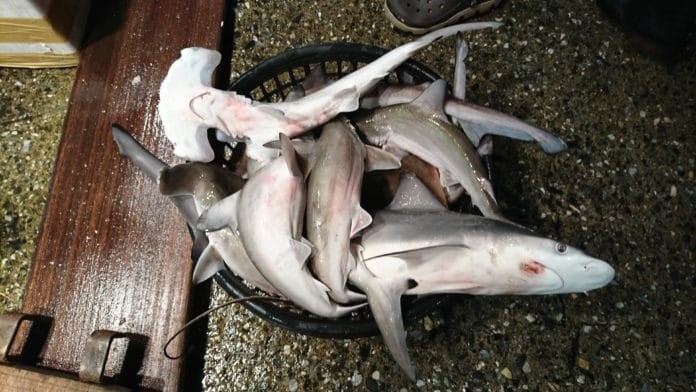Ocean advocacy group Project AWARE is applauding a new agreement by fishing countries gathered for the annual meeting of the General Fisheries Commission for the Mediterranean (GFCM) in adopting a European Union proposal to strengthen the regional ban on shark finning.
The new policy mandates that all sharks be landed with their fins naturally attached to their bodies, thereby closing loopholes that can lead to undetected finning. This complete prohibition on at-sea removal of shark fins is the first of its kind by an international fisheries body engaged in protecting multiple species of pelagic sharks, such as makos.
Domino Albert of Project AWARE said:
“We extend our gratitude to the many scuba divers who have been helping to encourage Egypt to support enforceable finning bans.”
The EU and Albania are among 17 co-sponsors of a proposal to add a fins-attached landing requirement to the International Commission for the Conservation of Atlantic Tunas (ICCAT) shark finning ban. ICCAT members, including Morocco, Tunisia, and Egypt will debate the proposal in November at an annual meeting in Croatia.
Albert added:
“The GFCM decision gives us hope that officials from Egypt and other Mediterranean countries interested in developing sustainable dive tourism will carry this momentum on and secure the same improvement to ICCAT’s shark finning ban next month.”
While the GFCM banned finning in 2005, the measure did not prohibit the at-sea removal of shark fins. Although finning has been banned by many regional fisheries bodies, loopholes remain in most cases. Allowing fins to be removed at sea and stored separately from carcasses complicates finning ban enforcement.
Ali Hood of the Shark Trust said:
“We applaud Mediterranean fisheries managers for taking this important step toward preventing the wasteful and indefensible practice of shark finning. We are particularly grateful to the EU for being a persistent champion of fins-attached requirements. This policy is essential not only for properly enforcing finning bans, but also for gathering vital information on shark catch.”
Requiring that sharks be landed with fins attached greatly reduces the enforcement burden and makes it impossible to “high-grade” (mix bodies and fins from different sharks). Because sharks are much more readily identifiable to the species level if their fins remain attached, such policies also facilitate the collection of key data on shark catches.
Sonja Fordham of Shark Advocates International said:
“Enforceable finning bans are a cornerstone of responsible shark fisheries management, and Mediterranean countries have set an excellent example for other regions around the world to follow. We now turn our focus to the Atlantic, as tuna fishery managers consider adopting the best practice, fins-attached requirement for vast fisheries affecting millions of oceanic sharks.”
(Photo credit: Yvette Bezuidenhout)

